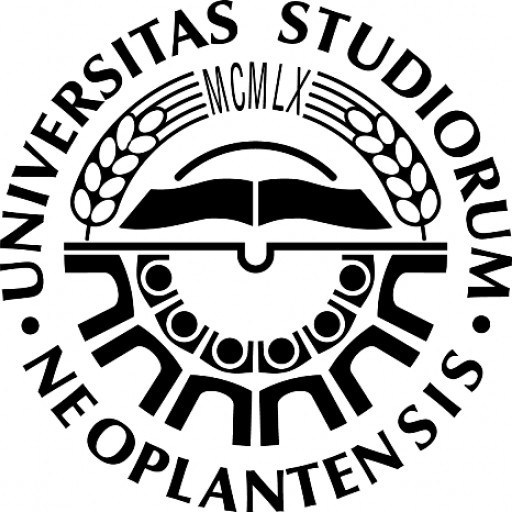Photos of university / #universityofleeds
Fluid Dynamics MSc at the University of Leeds offers an in-depth exploration of the fundamental principles and advanced applications of fluid mechanics. This comprehensive programme is designed for students who have a strong background in engineering or physical sciences and are seeking to develop specialized knowledge in the analysis and modelling of fluid flows. Throughout the course, students will engage with core topics such as laminar and turbulent flows, computational fluid dynamics (CFD), aerodynamics, hydrodynamics, and multiphase flows, gaining both theoretical understanding and practical skills. The programme combines lectures, tutorials, and laboratory sessions, enabling students to apply mathematical and numerical methods to real-world engineering problems. Students will also have opportunities to undertake research projects or industry placements, providing valuable hands-on experience and fostering professional development. The course is delivered by experienced academics and industry experts, ensuring cutting-edge content and relevance to current engineering challenges. Graduates of the MSc in Fluid Dynamics will be well-equipped for careers in sectors such as aerospace, automotive, energy, environmental engineering, and consultancy. They will also have a solid foundation for further research or doctoral studies. The University of Leeds provides state-of-the-art facilities and a vibrant academic community, supporting students in their academic and professional journey. With a duration of one year full-time (or part-time options available), this programme offers an excellent opportunity to enhance your expertise in fluid dynamics and to contribute to innovations in engineering solutions worldwide.
The Master of Science in Fluid Dynamics at the University of Leeds offers students a comprehensive and in-depth understanding of the fundamental principles and advanced applications of fluid mechanics. This programme is designed for graduates aiming to develop their expertise in the analysis, simulation, and solving of complex fluid flow problems encountered in engineering, environmental sciences, and industrial processes. Throughout the course, students will explore key topics such as classical fluid mechanics, turbulence modeling, computational fluid dynamics (CFD), and flow measurement techniques. The curriculum integrates theoretical foundations with practical skills, enabling students to employ modern software and tools for modeling and simulation of fluid phenomena.
In addition to core modules, students have the opportunity to specialise in areas like aerospace, mechanical engineering, or environmental engineering, tailoring their learning experience to their professional interests. The programme emphasizes research and innovation, encouraging students to undertake independent projects and collaborate with leading academics and industry partners. Through laboratory work, case studies, and project work, students gain hands-on experience in designing experiments, analyzing data, and interpreting results relevant to real-world fluid flow challenges.
Furthermore, the programme prepares graduates for careers in research, consultancy, manufacturing, and government agencies. The University of Leeds benefits from strong links with industry, providing students with networking opportunities, internships, and exposure to cutting-edge developments in fluid dynamics. Upon successful completion, graduates will possess the analytical, computational, and experimental skills necessary to address complex problems across various sectors, positioning them effectively for further academic research or professional practice in fluid mechanics and related fields.
Entry requirements for the Fluid Dynamics program at the University of Leeds typically include a strong academic background in relevant subjects. Applicants are generally expected to possess a minimum of AAA to AAB at A-level, including Mathematics and Physics. Alternatives such as a DDD in the Cambridge International Examinations or equivalent qualifications are also accepted. For applicants holding a BTEC qualification, Distinction Grade in Engineering or equivalent, along with A-level Mathematics and Physics, is usually required. International applicants should demonstrate proficiency in English, with standard requirements being a minimum of IELTS 6.0 overall, with at least 5.5 in each component, or equivalent proficiency tests such as TOEFL with a total score of 80 and minimum scores of 17 in Listening, 18 in Reading, 20 in Speaking, and 17 in Writing. The program welcomes applicants with a background in Physics, Engineering, or related scientific disciplines, and values prior experience in mathematics and computational methods. Applications are typically assessed based on academic achievement, personal statement, and, where applicable, relevant practical experience or research projects. The course aims to attract students with analytical skills, problem-solving abilities, and an interest in understanding the complex behavior of fluids in various engineering and scientific contexts. Additional requirements may include submission of a personal statement detailing motivation and interest in fluid dynamics, and two academic references. The University of Leeds promotes inclusivity and values diverse applicants with different educational backgrounds, provided they meet the core academic standards and demonstrate potential to succeed in the demanding field of fluid mechanics.
The financing of the Fluid Dynamics degree program at the University of Leeds is primarily covered through a range of funding options available to both domestic and international students. UK students can often access government-funded loans and grants, such as the Student Loans Company (SLC) loans, which help cover tuition fees and living expenses. The university also offers scholarships and bursaries specifically for engineering and physical sciences students, which can significantly reduce the financial burden. International students are generally required to self-fund their studies; however, some scholarships may be available, such as the Leeds International Masters Scholarship, which provides partial fee waivers. Students are encouraged to explore external funding opportunities, including government scholarships from their home countries and private sponsorships. The university provides information and support about tuition fee installment plans, allowing students to pay fees in manageable installments rather than a single lump sum. Additional funding may be available through research grants for students involved in research projects or collaborative industry placements. The university’s financial support services also assist students in budgeting and applying for external funding sources. Moreover, part-time employment opportunities on or near campus can help students supplement their income during their studies. It is recommended that prospective students contact the university's admissions and student finance offices directly to obtain detailed and personalized information regarding available funding sources, application procedures, and deadlines. Overall, the finance strategies aimed at supporting students’ academic ambitions include a combination of government loans, scholarships, sponsorships, installment payment options, and part-time work to make studying Fluid Dynamics at the University of Leeds accessible and financially manageable for deserving candidates.
Fluid Dynamics at the University of Leeds is a comprehensive program designed to provide students with a deep understanding of the fundamental principles governing the behavior of fluids in various contexts, including aerodynamics, hydrodynamics, and complex flow phenomena. The program emphasizes both theoretical foundations and practical applications, preparing graduates for careers in engineering, research, and industry sectors that rely on advanced fluid mechanics knowledge. Throughout the course, students explore topics such as laminar and turbulent flow, vortex dynamics, boundary layer theory, and computational fluid dynamics (CFD). The curriculum integrates laboratory work, numerical modeling, and real-world case studies to develop analytical and problem-solving skills essential for tackling engineering challenges involving fluids. The program also offers opportunities for students to engage in research projects, often in collaboration with industry partners or research institutes, enabling hands-on experience and exposure to current developments in the field. The University of Leeds features state-of-the-art facilities, including dedicated laboratories equipped with modern CFD software and experimental apparatus. Graduates of the Fluid Dynamics program are well-equipped to pursue careers in sectors such as aerospace, automotive engineering, environmental engineering, and energy, or to continue further academic research at a postgraduate level. The program is designed to foster critical thinking, innovation, and teamwork, reflecting the interdisciplinary nature of fluid dynamics studies. With a strong emphasis on employability, students are supported through career development workshops, internships, and networking opportunities with industry professionals. The program duration typically spans three years for full-time study, with joint or sandwich options available for additional industry placement years, further enhancing practical experience. Overall, the Fluid Dynamics program at the University of Leeds aims to cultivate capable engineers and researchers who can contribute to solving complex fluid-related problems across diverse applications and industries worldwide.








